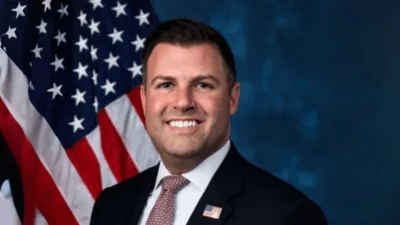Mr. Chairman, thank you for calling this hearing to focus on the problem of identity theft, the overuse of Social Security numbers by both the government and the private sector, and what we can do to better protect the number and reduce the incidence of identity theft.
Stealing or obtaining Social Security numbers through illegitimate means is a key part of identity fraud, and millions of people are harmed each year due to misappropriation of their identities. This subcommittee is deeply concerned about this problem, and in fact, this is the 18th hearing we have held on identity theft and protection of the Social Security number since January, 2000.
Let me urge that this subcommittee show this same diligence and thoroughness in examining some of the other critical issues surrounding Social Security today - such as the impact of cuts to SSA’s operating budget this year, and their consequences for people awaiting disability benefits; the impact of cuts to SSA’s operating budget on SSA’s ability to prevent waste, fraud and abuse; or the impact on seniors’ retirement security of the kinds of Social Security benefit cuts praised by Budget Chairman Ryan, or proposed by the Republican Study Committee in its budget, which represents nearly three-quarters of all House Republicans.
While Democrats and Republicans may have different views on the importance of Social Security benefits for today’s seniors and future retirees, we are united in our concern about identity theft. And that is the focus of today’s hearing.
Identity theft ruins individuals’ good names and destroys their credit ratings. Identity thieves have stolen the homes of elderly retirees, and have caused innocent persons to be arrested when crimes are committed under a falsified identity. It has even ruined the future credit ratings of young children.
This subcommittee has heard from many victims of identity theft, who have described the extensive harm they have suffered as a result of identity fraud - harm which continues long after the fraud is discovered.
The U.S. Department of Justice’s Bureau of Justice Statistics released a special report last year on identity theft. It found that almost 12 million people were victims of some form of identity theft in 2008-2009. This represents about 5 percent of the population age 16 or older. These crimes carried a total cost of $17.3 billion - including the direct costs of the goods or services obtained under false pretenses, and over $1 billion in indirect costs such as legal fees or bounced checks.
In this subcommittee, we have worked in a bipartisan manner for years to advance legislation to restrict the widespread use of Social Security numbers, and to strike a better balance between the appropriate use of the number and keeping it out of the easy reach of identity thieves.
Today, we will hear from three different government experts about this problem and proposed solutions. I welcome the testimony of the Social Security Administration and its Inspector General, who together have done much in recent years to enhance the security of the Social Security number. We also welcome the Federal Trade Commission, which plays a critical role in protecting consumers from identity theft.
Chairman Johnson, I look forward to jointly reintroducing identity-theft prevention legislation in this new Congress and to make significant progress working together. Thank you again for calling this hearing.









